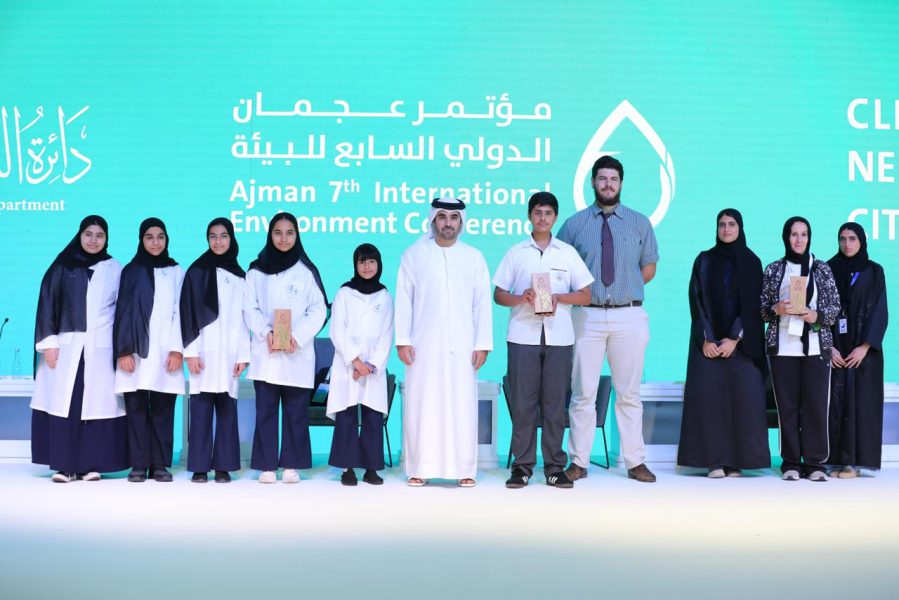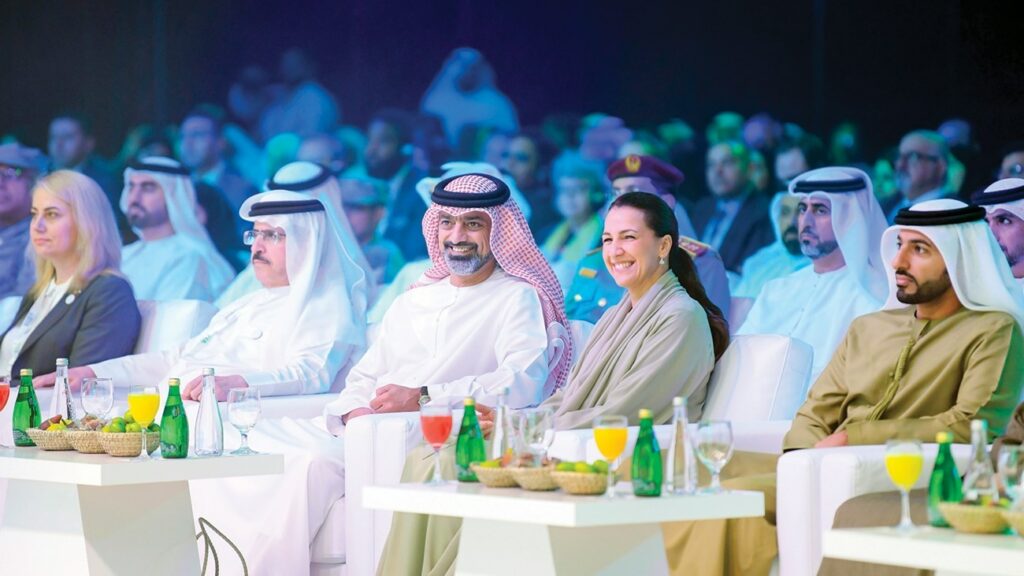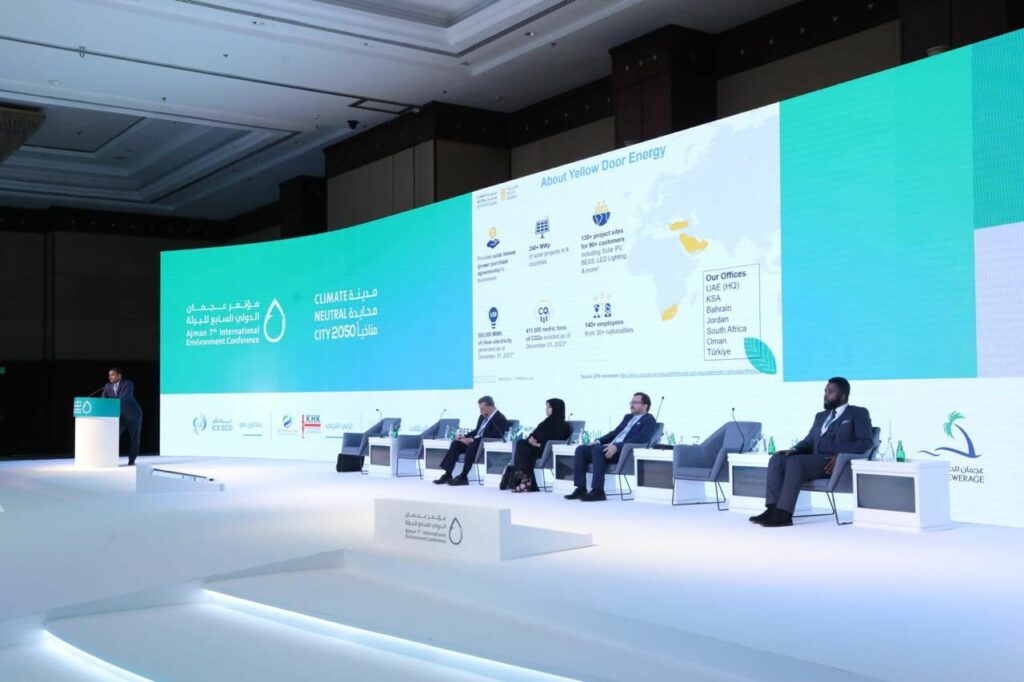Participants in the third edition of the Ajman International Environment Conference recommended the adoption of national and regional strategies for energy efficiency, clean energy, and renewable energy. They emphasized commitment to environmental recommendations arising from discussions during the eight conference sessions and accompanying workshops. Participants urged the implementation of environmental systems for urban land classification and the establishment of a national industrial policy that provides an institutional and regulatory framework conducive to low-carbon industries, research capabilities, and development studies.
They called for the importance of imposing environmental requirements and enacting laws and regulations compelling real estate developers, business project owners, and owners of large hotel resorts to enhance the efficiency of renewable energy. They also emphasized recycling water for irrigation, giving it high priority in the design and operation of green buildings and hotel designs. They stressed the economic feasibility of solar water heating and emphasized focusing on generating renewable energy to protect environmental elements.
Thank you and appreciation telegram.
The participants in the third edition of the Ajman International Environment Conference, representing 15 Arab and foreign countries around the world, sent a telegram of congratulations, thanks, and appreciation to His Highness Sheikh Humaid bin Rashid Al Nuaimi, a member of the Supreme Council of the Union and the Ruler of Ajman, for his gracious sponsorship of the conference. They also expressed their gratitude to His Highness Sheikh Ammar bin Humaid Al Nuaimi, the Crown Prince and President of the Executive Council, who honored the conference with his opening remarks and attended some of its environmental sessions. They thanked and appreciated the organizing committee, which demonstrated environmental success stories in organizing and hosting the conference and presenting important environmental issues at the local, Arab regional, and global levels. They emphasized that the conference was successful by all standards, including its accompanying events and a tourist program that contributed to introducing them to important tourist landmarks in the UAE and highlighting its tourist attractions and authentic Arab values of hospitality and welcome.
Green economy.
The participants called for environmental regulations specific to the design of eco-friendly cities that achieve sustainability through applications of green economy pathways. They emphasized the necessity of continuous investments in public transportation within eco-friendly cities. They advocated for an approach to reuse neglected solid waste, urging municipalities to recycle it to add value by reusing discarded materials and waste in serving eco-friendly cities. This is aimed at minimizing their negative environmental impact, promoting recycling, and recovering their materials for beneficial environmental industries. Participants also called for the implementation of sustainable tourism practices in travel, hospitality, and leisure services, with special attention to eco-cultural tourism, and the promotion of awareness among all segments of society.
The conference called on all regional organizations and governments to implement recommendations from all environmental conferences to finance environmental projects and programs. It also urged the launch of regional initiatives related to green economy pathways, including areas such as research, clean and renewable energy, green eco-friendly cities, cleaner waste production, sustainable agriculture, regional transportation networks, oil use, and the reduction of carbon emissions from factories and various modes of transportation.




